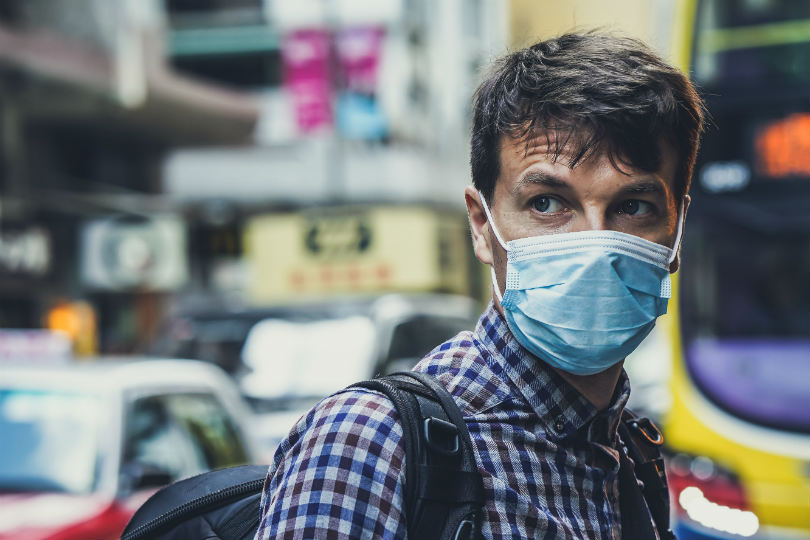‘Telling customers everything is going to be OK is a risky strategy’
 Steve Hinds
Steve HindsAt Kuoni we take the word “expert” very seriously. So seriously it’s one of the three words we use to describe the role of the most important people in our business. We call them our Personal Travel Experts; travel because that’s what we sell, and personal because that’s how we sell it. It’s personal because we listen, we listen really hard, and right now our customers are telling us that they’re worried about the spread of coronavirus.
We’re experts in travel, we’re not experts in virology. The World Health Organization (WHO) employs experts in virology, they’re called virologists and they have lots of them.
The virus experts at WHO and elsewhere spend a lot of their time studying viruses, particularly what happens when a virus finds itself inside one of us and how readily it spreads between us. They’ve recently completed an extensive study of the outbreak of Covid-19 in Wuhan and published their findings. Here’s the summary:
About 80% of people who get it will have it mildly and will be fine, 15% may be more serious and for 5% it’s critical. Overall there’s a 3% fatality rate but it goes up from age 50. For those aged 80 and over it’s 14%. Those most at risk in all age groups are those with underlying illnesses especially heart disease and respiratory problems.
Anyone who reads a newspaper or watches TV will be very familiar with these facts already – they’ve been widely reported – and there’s no doubt that for many people they are unsettling. Add to that the recent widely reported outbreaks of coronavirus in northern Italy, in Tenerife and on cruise ships and it’s inevitable that disinclination to travel is becoming a major problem.
Faced with this challenge, the widespread default response from many in the travel industry has been to blame the media and to urge everyone to calm down. Using hashtags like #coronahype and #nopanichere they’ve taken to social media with increasingly frantic posts; calculating to 10 decimal places the percentage of people who have so far died from the virus and comparing it with the number of people who die of other causes; quoting headlines from previous epidemics which later prove to be wrong; saying that most of us needn’t worry because we’re not in a high-risk group; and, of course, calling out the “so-called experts” who “don’t know what they’re talking about”. (I blame Michael Gove for this last one.)
This is a serious misjudgement. People are justifiably worried about their travel plans, and for those who haven’t booked yet, there’s an understandable reluctance to commit. Whatever damage is being done to the travel industry our role is not to undermine the messaging from government or worse, to imply that our customers are somehow at fault for believing the news. Of course we want to reassure people that they are making the right decision to travel, but to pretend that they are wrong to be concerned is a mistake.
By the way, I’m getting especially fed up with people saying that Covid-19 only kills the elderly and people with underlying illnesses, as if we shouldn’t care. All of us know somebody in those groups – in many cases they’re the people that we care about the most; our own parents and grandparents.
Now is a time for calm heads and a measured response. It’s going to be a very tough period ahead but there will be light at the end of the tunnel, the storm will pass and our customers will return. Right now we need to show empathy and understanding, after all it’s not difficult to see why our customers are anxious. Dismissing the official advice and forecasts and simply telling customers that everything is going to be OK is a risky strategy.
Last week a news reporter asked Liverpool FC manager Jurgen Klopp how he felt about the possibility of his team playing their games in front of empty stands. He didn’t rage about media hype, he didn’t try to claim that the risk was lower than they were saying; he just said that he was a football expert and that the club would follow the advice of the experts. Closer to home, Richard Fain, chief executive of Royal Caribbean Cruises Ltd, took to video this week to clearly and calmly explain what RCCL would be doing to manage its way through this difficult time. There was no blame and no finger pointing. It was a perfect example of the approach we should all be taking.
We need to take this crisis very seriously, follow the advice, look after our customers and our staff and take appropriate measures to secure the future of our businesses. Campaigning against the media in the misguided belief that if everyone would just calm down the problem will evaporate is at best a waste of energy. At worst, it could be a dangerous gamble with people’s lives.
Derek Jones, is chief executive of Der Touristik UK
Created with Poll MakerSign up for weekday travel news and analysis straight to your inbox

Steve Hinds
Supplier Directory
Find contacts for 260+ travel suppliers. Type name, company or destination.










